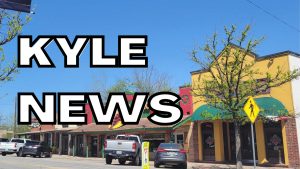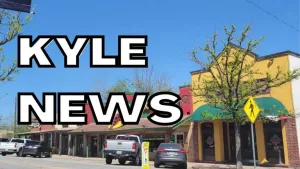By Moses Leos III
Moves made to “streamline” Kyle City Council appointed committees could see 12 placed on hiatus or eliminated entirely if changes recommended by city staff are enacted.
“When we looked at all structures of committees, some are needed,” City Manager Scott Sellers said. “Some I would argue … maybe are not needed at this time, but could be called upon as needed.”
Discussion on committees hit full throttle on Mar. 17 when Sellers presented the results of staff discussions on committees.
Recommendations presented include promoting some committees, such as Parks and Recreation, to board status. Economic Development and Tourism was also promoted.
The moves would give them certain oversight and authority over a general committee. In addition, it would allow for non-residents to make up the board.
But Sellers said “a good bit of dialogue” ranged toward finding which committees were worthy enough to keep on a full time status.
Sellers said staff looked at what committees were tasked with doing, and “which functions were more of an ‘as-needed’ basis versus a full-time basis.”
He said some committees that had their “purposes fulfilled or currently not needed” could be slated as ad-hoc.
In addition, the city could also create a governing ordinance for committees. That would entail repealing all individual committee ordinances. In its place would be an ordinance that would set requirements for all committees.
Kyle Mayor Todd Webster, who originally began the crusade to restructure committees, said the current structure and requirements to appoint committee members and chairs were “chaotic.”
He ultimately wants to appoint those who want to serve on a committee to have a meaningful charge. Webster said it would be a “mistake” to put someone “on a committee with nothing to do.”
Council Member Shane Arabie shared similar sentiments.
“If you give somebody a committee, or bring them into a commission or committee without a charge, they sit there and stagnate,” Arabie said on the dais. “That’s the worst possible situation we can do to citizens…”
Webster believed other factors also play a role, such as some committees draining staff time. Council Member David Wilson held concerns that some committees were costing taxpayers.
However, what was the deciding factor in which committees held more weight than others?
According to Sellers, the focus was to make discussions within some committees “available for the citizenry at large.”
He cited the recent Transportation Master Plan workshop, which allowed for citizen input, rather than discussion in a committee setting.
“We want to understand the will of the public, of the entire public,” Seller said.
But a few of the changes came as a bit of a surprise for Mayor Pro-Tem Diane Hervol.
She said there were a few committees on the list that she “saw some real benefit to having them.”
However, more research on the subject is needed.
“I’d like to have more time to digest it,” Hervol said. “I encourage and really want citizen participation. I’d like for us to be as transparent as possible and for them to participate as they see fit.”
Some committee chairs welcomed improving the committee process. Community Relations interim chairperson Stanley See believed better direction from council is necessary for committees. Improving the application process is also imparitive.
Mobility chairperson Gayle Meister said she was “okay” with her committee possibly being placed on hiatus. She reasoned the costs it could save the city in the long run.
“If it saves money, I’m all for it,” she said.
Sellers said the city plans to bring the item back to council for a vote on April 7.








